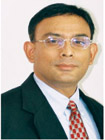
TAX TALK – YEAR-END TIPS

It’s tax time again (almost)! Below are some tips and reminders that may help with your taxes before the yearend:
Individual
-
Itemized deductions – if you itemize deductions on your tax return, you may be able to deduct certain miscellaneous expenses (in addition to state/real estate/property taxes, mortgage interest, and charitable contributions).
Deductions subject to the 2 percent limit. You can deduct most miscellaneous expenses only if they exceed two percent of your adjusted gross income. These include expenses such as unreimbursed employee expenses, expenses related to searching for a new job in the same profession, certain work clothes and uniforms, tools needed for your job/union dues and non-reimbursed work-related travel and transportation.
Deductions not subject to the 2 percent limit. Some deductions are not subject to the 2 percent of AGI limit:
Certain casualty and theft losses. This deduction applies if you held the damaged or stolen property for investment; gambling losses up to the amount of gambling winnings; losses from Ponzi-type investment schemes.
-
Retirement plans – maximize contributions to your participating retirement plans such as 401k, Simple, etc. If you are not a participant to any of the retirement plans you may be eligible to contribute to the traditional IRA accounts. If you are self-employed, you may be eligible to contribute to individual/Solo 401k/SEP-IRA plan, etc.
-
Sell loser investments - You can use capital losses to offset taxable capital gains, plus up to $3,000 in ordinary income. Remember, any losses you can't use to offset gains this year can be carried over into future tax years. Be cautious of the ‘wash sale rule’, which prohibits taxpayers from recognizing losses on sales of securities that are repurchased within 30 days.
-
Energy-saving credit You may be eligible $500 tax credit for energy-efficient home improvements, such as new windows, doors and skylights, in 2013. Be extra careful though, that $500 is the lifetime maximum, so if you claimed $500 in energy-efficient credits before this year, you can’t claim this credit. There are also restrictions on specific projects; for example, the maximum you can claim for new energy-efficient windows is $200.
-
Alternative Minimum Tax (AMT) - In certain cases, accelerating tax deductions can trigger AMT taxes. Ensure that the itemized deductions do not result in AMT calculations.
-
Required Minimum Distributions (RMD) from retirement accounts - if you're age 70½ or older and required to take minimum required distributions from your retirement accounts, you need to do so before year-end. If an account owner fails to withdraw a RMD, fails to withdraw the full amount of the RMD, or fails to withdraw the RMD by the applicable deadline, the amount not withdrawn is taxed at 50 percent.
-
Social Security benefits – Properly time-claiming Social Security benefits. If you stop working, you can claim benefits as early as age 62. But note that each year you delay — until age 70 — promises higher benefits for the rest of your life. And, delaying benefits means postponing the time you'll owe tax on them.
-
Estimated taxes/withholdings – Ensure that you have adequate tax withholdings from your employments; pay estimated taxes for any additional income
Business:
-
Equipment purchase. If you are in business and purchase equipment (both old and new) you may make a ‘section 179 election,’ which allows to expense fully in the current tax year.
-
Bonus depreciation. Fifty percent bonus depreciation for assets placed in service during 2013.
-
Qualified leasehold improvement property. Generally, this is any improvement to an interior part of a building that is nonresidential real property; in addition, qualified restaurant property and qualified retail improvement property that also satisfies the definition of qualified leasehold improvement property is eligible for bonus depreciation (50 or 100 percent) assuming all requirements are met.
There are various limitations and thresholds for many of the tax deductions. Please consult your CPA/Tax attorney/or tax consultant for proper guidance with the above subject matter.
DISCLAIMER: In accordance with IRS Circular 230, the above information is not intended or written to be used, and cannot be used as or considered a "covered opinion" or other written tax advice and should not be relied upon for the purpose of avoiding tax-related penalties under the Internal Revenue Code; promoting, marketing, or recommending to another party any transaction or tax-related matter(s) addressed herein; for IRS audit, tax dispute or other purposes.
Suresh Kumar, CPA, MBA is the Principal of Kumar Consulting, PA, a CPA & Consulting firm licensed in the states of FL, KS, and MO and can be reached at (813) 421-5068, e-mail [email protected] or visit www.kumarconsultingcpa.com